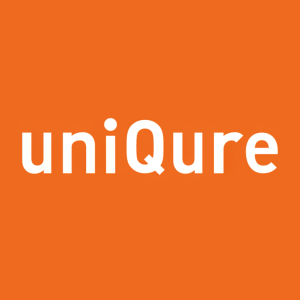uniQure Announces Recommendations from Data Safety Monitoring Board of Phase I/II Clinical Trial of AMT-130 for the Treatment of Huntington’s Disease
uniQure (NASDAQ: QURE) announced that the independent Data Safety Monitoring Board (DSMB) reviewed 90-day safety data from the first two patients in its Phase I/II trial of AMT-130 for Huntington's disease. No significant safety concerns were noted, allowing the trial to proceed with enrollment of the next two patients. The double-blind study will assess safety and efficacy in 26 patients with early-stage Huntington's disease. The trial is expected to provide insights into the potential of AMT-130 as a treatment option.
- No significant safety concerns reported from the first two patients in the AMT-130 trial.
- Trial can proceed with the enrollment of additional patients.
- None.
Insights
Analyzing...
LEXINGTON, Mass. and AMSTERDAM, Sept. 25, 2020 (GLOBE NEWSWIRE) -- uniQure N.V. (NASDAQ: QURE), a leading gene therapy company advancing transformative therapies for patients with severe medical needs, today announced that the independent Data Safety Monitoring Board (DSMB) overseeing the Phase I/II clinical trial of AMT-130 for the treatment of Huntington’s disease has met and reviewed 90-day safety data from the first two patients enrolled in the trial. No significant safety concerns were noted to prevent further dosing, and the next two patients are now cleared for enrollment in the study. The Phase I/II study is a double-blind, randomized clinical trial being conducted in the United States. One patient has been treated with AMT-130, and one patient received the imitation surgery.
“We are very pleased with the positive outcome from this first DSMB meeting,” said Ricardo Dolmetsch, president of research and development at uniQure. “We will now advance the study and expect to enroll the next two patients as soon as possible.”
About the Phase I/II Clinical Trial of AMT-130
The Phase I/II clinical trial of AMT-130 for the treatment of Huntington’s disease will explore the safety, tolerability, and efficacy signals in 26 patients with early manifest Huntington’s disease randomized to treatment with AMT-130 or an imitation (sham) surgery. The five-year, multi-center trial consists of a blinded 12-month core study period followed by unblinded long-term follow-up. Patients will receive a single administration of AMT-130 through MRI-guided, convection-enhanced stereotactic neurosurgical delivery directly into the striatum (caudate and putamen). Additional details are available on www.clinicaltrials.gov (NCT04120493).
AMT-130 is uniQure’s first clinical program focusing on the central nervous system (CNS) incorporating its proprietary miQURE™ platform.
About Huntington’s Disease
Huntington’s disease is a rare, inherited neurodegenerative disorder that leads to motor symptoms including chorea, and behavioral abnormalities and cognitive decline resulting in progressive physical and mental deterioration. The disease is an autosomal dominant condition with a disease-causing CAG repeat expansion in the first exon of the huntingtin gene that leads to the production and aggregation of abnormal protein in the brain. Despite the clear etiology of Huntington’s disease, there are no currently approved therapies to delay the onset or to slow the disease’s progression.
About uniQure
uniQure is delivering on the promise of gene therapy – single treatments with potentially curative results. We are leveraging our modular and validated technology platform to rapidly advance a pipeline of proprietary gene therapies to treat patients with hemophilia B, Huntington's disease, Fabry disease, spinocerebellar ataxia Type 3 and other diseases. www.uniQure.com
uniQure Forward-Looking Statements
This press release contains forward-looking statements. All statements other than statements of historical fact are forward-looking statements, which are often indicated by terms such as "anticipate," "believe," "could," "estimate," "expect," "goal," "intend," "look forward to", "may," "plan," "potential," "predict," "project," "should," "will," "would" and similar expressions. Forward-looking statements are based on management's beliefs and assumptions and on information available to management only as of the date of this press release. These forward-looking statements include, but are not limited to, whether we will be able to enroll the next two patients in the clinical trial. Our actual results could differ materially from those anticipated in these forward-looking statements for many reasons, including, without limitation, risks associated with the impact of the ongoing COVID-19 pandemic on our Company and the wider economy and health care system, our clinical development activities, clinical results, collaboration arrangements, regulatory oversight, product commercialization and intellectual property claims, as well as the risks, uncertainties and other factors described under the heading "Risk Factors" in uniQure’s periodic securities filings, including its Annual Report on Form 10-K filed March 2, 2020 and Quarterly Report on Form 10-Q filed on July 30, 2020. Given these risks, uncertainties and other factors, you should not place undue reliance on these forward-looking statements, and we assume no obligation to update these forward-looking statements, even if new information becomes available in the future.
uniQure Contacts:
| FOR INVESTORS: | FOR MEDIA: | ||||
| Maria E. Cantor | Chiara Russo | Tom Malone | |||
| Direct: 339-970-7536 | Direct: 617-306-9137 | Direct: 339-970-7558 | |||
| Mobile: 617-680-9452 | Mobile: 617-306-9137 | Mobile: 339-223-8541 | |||
| m.cantor@uniQure.com | c.russo@uniQure.com | t.malone@uniQure.com | |||







